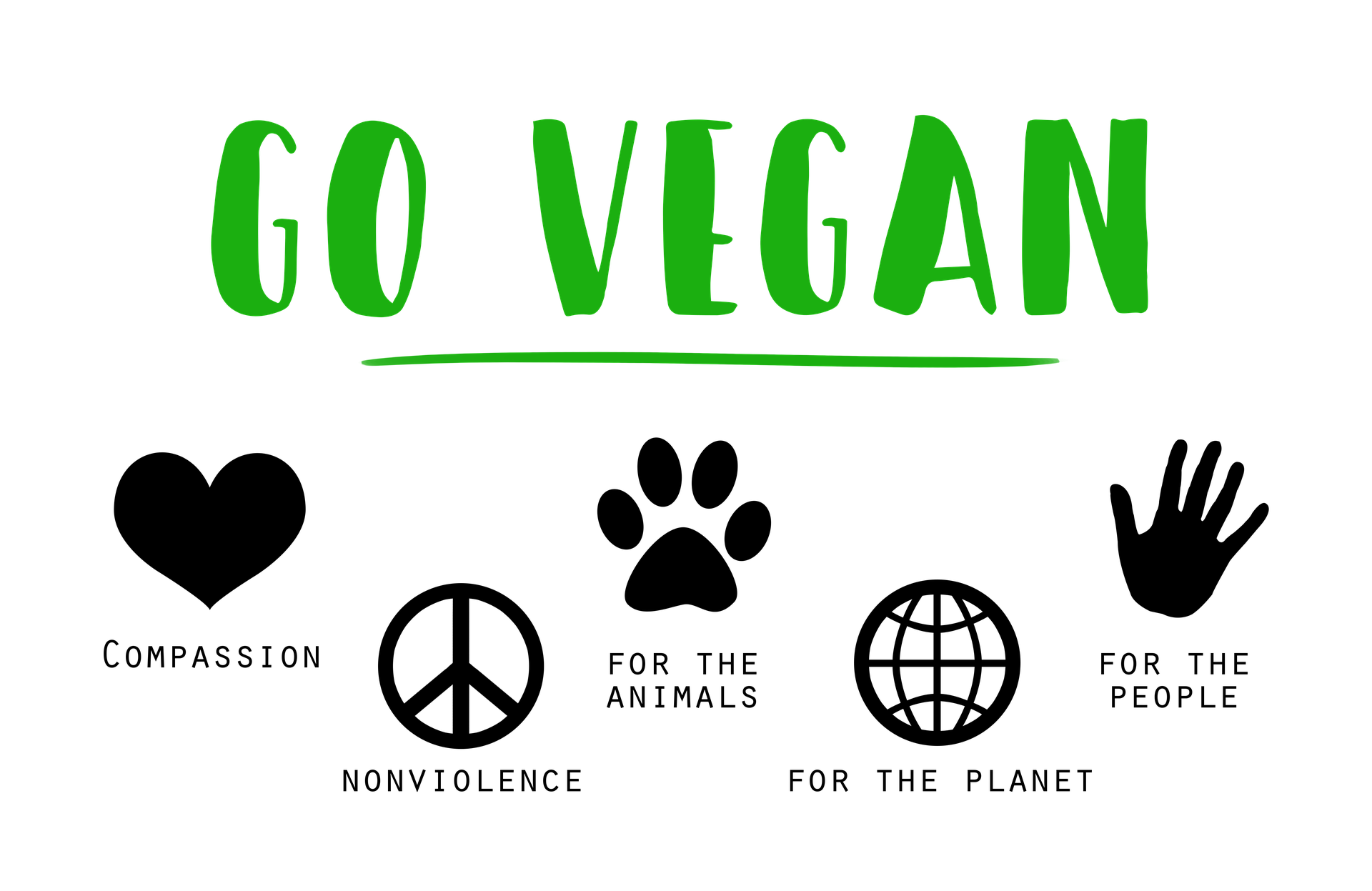Why vegan?
Vegan life is often laughed at, though it is slowly being more widely accepted in some Western countries. Still, behind most jokes is ignorance or lack of knowledge. There are many reasons why one should consider the vegan lifestyle. What influences our way of living you will find wonderfully explained in an article when you click on the "vegan is a global solution tool" button.

My reason to forgo animal food was at first exclusively health-motivated.
Since the topic of "nutrition" and its importance has influenced more and more, I have also been confronted with topics which, for the most part, have a secondary impact on my health. Today, I know that I do not only do myself and my health a favor when I give up animal food, but also live more mindfully (even if my contribution is small) and more responsibly in many respects.
It would be a good start already if we could return to the days of the "Sunday roast" and consume more moderately.
From a purely medical and health perspective, here are a few good reasons to go vegan:
Vegetarians and vegans often have a lesser risk of contracting so-called "people diseases", such as type 2 diabetes, stroke, cancer, heart disease, and being overweight.
Anyone who is affected by rheumatoid arthritis can also significantly relieve the symptoms by switching to a vegan diet.
The cholesterol levels in the blood are significantly lower for people who are vegan than for meat eaters. This is caused by the lower (or non-existent) intake of animal fats which provide saturated fatty acids and cholesterol. At the same time, the body is supplied with large amounts of mono- and polyunsaturated fatty acids.
Reasons for a vegan diet from health perspective:
In Germany, 1,700 tonnes of antibiotics are used every year in livestock farming. This is nearly seven times as many as in the hospitals.
Verarbeitetes (in Geschmack oder Haltbarkeit verändert) Fleisch ist krebserregend für Menschen.
Da ohne eine entsprechende Verarbeitung zur haltbarkeit der Verwesungsprozess einsetzt ist diese obligatorisch.
Die Entstehung von Krebserkraungen kann durch den Konsum von rotem Fleisch (Muskelfleisch von Säugetieren) nachgewiesen werden.
Processed meat is carcinogenic
Processed (meaning altered in taste or shelf life) meat is carcinogenic to humans.
Since the decay process is used without a corresponding processing for the durability, long shelf life is inevitable.
The consumption of red meat has been proven as s source for cancer. (Or all muscle meat of mammals).
Source: Report from the 26.10.2015 International Agency for Research on Cancer (2015): ARC Monographs evaluate consumption of red meat and processed meat. (Retrieved on 07/08/2016)
The consumption of cow's milk increases the blood level of insulin-like growth factors (IGF-1). These stimulate, among other things, cancer cells to grow.
The general organism of people with a plant-based diet (vegan) stops the growth of cancer cells 8 times more than that of people who eat non-vegan, processed foods.
Source: Study of men with prostate cancer, half of whom have made a severe change in their lifestyle: https://www.ncbi.nlm.nih.gov/pubmed/?term=Intensive+Lifestyle+changes+may+effect+the Progression + of + prostate + cancer
A plant-based diet (vegan) can prevent the development of many diseases or positively influence the course of the disease and contribute to the recovery. These include in particular the four largest Western civilization diseases (cancer, diabetes, myocardial infarction and stroke).
Source: Report on the experiment: https://www.ncbi.nlm.nih.gov/pubmed/25198208
Ethical and ecological reasons to go vegan
An average of 1,020 liters of water (8.5 full bathtubs) to produce one liter of cow's milk.
An average of 15,400 liters of water (128 full bathtubs) are required to produce one kilo of beef.
Only 1,800 liters of water are needed for the production of one kilo of soybeans.
Source: http://wfn.project-platforms.com/Reports/Mekonnen-Hoekstra-2012-WaterFootprintFarmAnimalProducts.pdf
If one compares the results to a protein of the same size, the use of an area for the cultivation of soybeans yields 15 times more protein (and healthier protein) than the use of the same area for the keeping of farm animals.
70 species of animals die out every day. Agricultural livestock is responsible for the deforested areas of the Amazon rainforest at 91%.
Every second, approximately 6,000 m² rainforest area is cut down. For comparison, a soccer field covers 7,140 m².
Source2: http://www.rainforestrelief.org/What_to_Avoid_and_Alternatives/Rainforest_Wood.html
Approx. 70 billion farm animals are slaughtered annually worldwide. In August 2016, the world population amounted to 7.44 billion people.
Source: http://www.ciwf.org.uk/media/3640540/ciwf_strategic_plan_20132017.pdf
Approx. 50 million male chicks are shred or gassed every year in Germany after hatching.
Source: https://www.boell.de/sites/default/files/20160609_isswas_tiere_fleisch_und_ich.pdf
In addition to the 50 million chicks who had the misfortune to be born the wrong gender and bring no benefit to humans, more than 54 million animals in Germany alone land in household rubbish - their meat is not eaten, but thrown away. The numbers rise considerably for the United States.
Source: https://www.boell.de/sites/default/files/20160609_isswas_tiere_fleisch_und_ich.pdf






